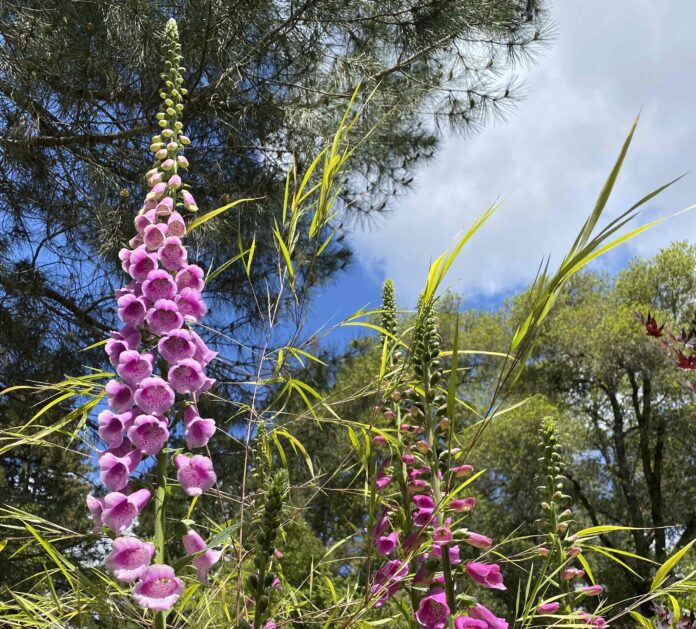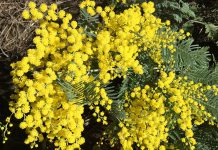
I regularly visit my burned parcel in Bonny Doon to monitor the progress of the redwoods and understory plants. It will take 30-50 years for the forest to regenerate, but it’s trying.
Amazing how Mother Nature takes advantage of voids. Succession plants like native Yerba Santa are everywhere. I don’t mean just a few. I mean hundreds of thousands all blooming and attracting butterflies and bees. Also, Bicolor lupine is flowering in huge numbers, and California poppies are all over Bonny Doon. Lupine roots, or nitrogen-fixing bacteria on the roots, take nitrogen from the air and are so useful in restoring the soil. Birds eat the seed, and butterflies and bees are attracted to lupine. The Arrowhead Blue butterfly uses this plant as a host.
None of the original plants survived the fire. On my property, ceanothus thrysiflorus (Blueblossom ceanothus) has sprouted huge numbers—they used to regularly self-seed, but this crop is all from seed. Bluewitch nightshade has appeared in large numbers also, which I had never seen on my property before the fire. Bees, butterflies and moths love it.
Other plants that have been growing up there on their own since the fire. Without irrigation for over a year and a half, Hummingbird sage (Salvia spathacea) is blooming and spreading again. Hummingbirds, bees and butterflies are attracted to this plant. California fuchsia (Epilobium canam) never skipped a beat after the fire and has self-seeded and spread also. Hummingbirds, butterflies and moths frequent these plants also.
Cultivated plants that have come back include smoke bush (Cotinus coggygria), Bear’s breeches (Acanthus mollis) and an ancient New Zealand tree fern.
Many of the burned plants that I brought back in melted pots are staging a comeback. I had to cut off all of the burned woody trunks of Pink Flowering currant, but it has sprouted from the roots and is regrowing. Hellebore, bleeding heart, calla lily, liriope, Japanese forest grass, a couple of flowering maples, Bletilla and cymbidium orchids are making a valiant effort.
My favorite comeback story is the foxglove that sprouted last year in a couple of my pots. The seed must have come from one plant above my burn property on the hillside. They are the perfect flower for hummingbirds. Each flower produces a large amount of nectar, and they offer the supply that hummingbirds need to support their high energy needs.
All gardners are optimists. We just need to be very, very patient with Mother Nature.
Jan Nelson, a landscape designer and California-certified nursery professional, answers questions about gardening in the Santa Cruz Mountains. Email her at ja******@*ol.com, or visit jannelsonlandscapedesign.com.











